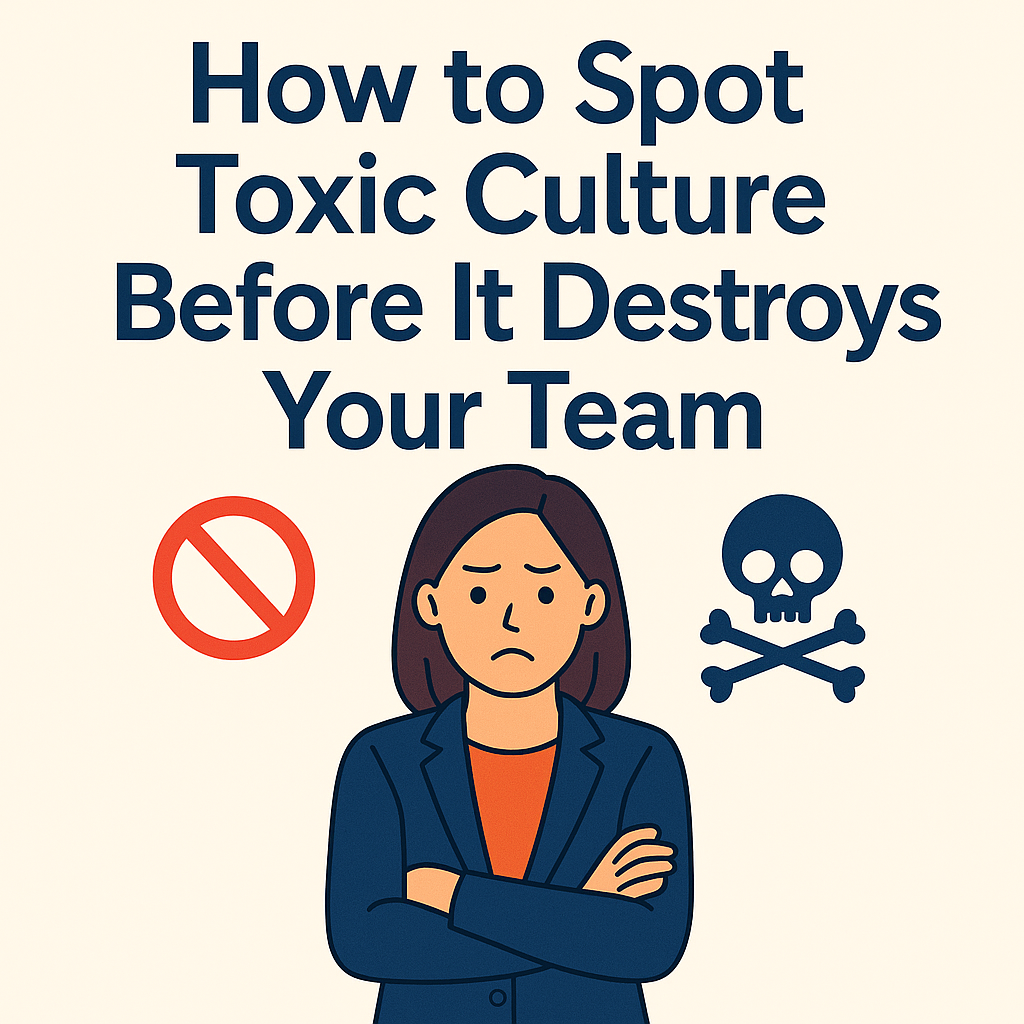Toxic culture is like damp in an old house. It starts quietly, often hidden behind paint. By the time you see the marks, it has already spread. Fixing it means more than repainting. You have to strip back and deal with the cause.
Culture becomes toxic not through one big event but through a series of small allowances. Someone takes credit for another’s work, and nobody says anything. Deadlines become more important than honesty. Meetings reward flattery over substance. People stop raising concerns because they have learned it is safer to stay silent.
By the time the symptoms are visible — high turnover, stress, defensiveness — the problem is well established. The root cause is usually fear. Fear of losing status, of being blamed, or of confronting uncomfortable truths. Once fear becomes normal, learning stops and politics takes over.
The warning signs are subtle. You hear more talk about “how things look” than “what makes sense.” People say “I’ll check with so-and-so” before making even simple decisions. Meetings end with smiles but little trust. Cynicism becomes humour, and tiredness becomes pride.
Healthy cultures are not polite; they are open. People argue without aggression and apologise without fear. Leaders take responsibility publicly and give credit privately. Success is measured not just by what is achieved, but by how it feels to work there.
Culture is the shadow of leadership. Whatever leaders tolerate, they endorse. Whatever they praise, they multiply. A toxic culture is rarely the fault of employees; it reflects what leaders have allowed to grow.
Key Takeaways
- Toxicity grows from small allowances, not big scandals.
- Fear is the root cause of most cultural decline.
- Healthy cultures are open, not always polite.
- Leaders shape culture through what they tolerate.
- Fixing culture means changing behaviour, not slogans.
Try This
Ask your team privately: “What do we do here that makes your job harder than it needs to be?” Listen carefully. Their answers reveal where the culture is breaking down.
Closing Thought
If this rings uncomfortably true, share it with your leadership peers. A toxic culture cannot survive sunlight. Bring the conversation into the open.




